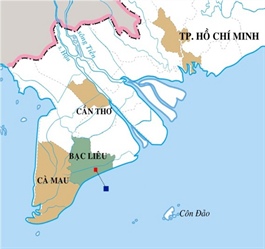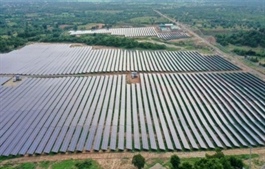Local goods to benefit from new generation trade agreements
Local goods to benefit from new generation trade agreements
New generation trade agreements could hold the keys to success for many Vietnamese enterprises, especially smaller firms, so they should be making every effort to grasp the opportunities they offer.

The matter was discussed by economists, ministry and department leaders and local enterprises during a forum held by the Ministry of Industry and Trade (MoIT) in Ha Noi on Thursday to look at ways to improve the competitiveness of Vietnamese goods and take advantage of new generation trade agreements.
Deputy Minister of Industry and Trade Do Thang Hai told the forum that Viet Nam was now a member of many new FTAs including the Comprehensive and Progressive Agreement for Trans-Pacific Partnership (CPTPP) and the European Union-Viet Nam Free Trade Agreement (EVFTA).
“Participating in FTAs has helped the import and export market expand and diversify, and the financial services market become more developed with the participation of foreign investors, so institutional systems and policies must be completed to meet the requirements of integration and the implementation of these commitments,” he said.
“Along with the country's accession to the WTO in 2007, FTAs have contributed to boosting the country's GDP to more than 300 per cent and increased import-export turnover by 350 per cent,” he added.
Hai said while the COVID-19 pandemic was ongoing and influencing the global economy, local commodity retail in Viet Nam had emerged as one of the bright spots for the macroeconomy.
According to the General Statistics Office (GSO), total estimated retail sales of consumer goods and services in the third quarter of 2020 reached VND1,305 trillion (US$56.7 billion), an increase of 14.4 per cent compared to the second quarter of 2020 and 4.5 per cent over the same period last year.
In the first three quarters, retail sales of goods reached VND2,907.1 trillion, an increase of 4.8 per cent over the same period last year, GSO data showed.
Hai told the forum: “It is a positive result, clearly demonstrating the role of domestic goods during the unpredictable developments of epidemics and natural disasters. At the same time, it clearly shows the role of Vietnamese products in the domestic market because they are becoming increasingly favoured by consumers.”
According to a MoIT survey, Vietnamese products had become more appreciated and were being given priority by distributors and retailers in Viet Nam. The proportion of Vietnamese products in modern distribution systems was high. Specifically, Vietnamese goods in Co.opmart accounted for between 90 per cent and 93 per cent; in Satra between 90 per cent and 95 per cent; in Vinmart 96 per cent; in Vissan 95 per cent and in Hapro 95 per cent.
Mentioning local enterprises, Tran Duy Dong, deputy minister of Planning and Investment, said: “Despite being an important development engine for the economy and accounting for about 98 per cent of the total number of enterprises, the majority of private enterprises are still small or micro, which prevents them from accumulating capital to invest in innovate technology, expand their production scale or improve management skills and human resources.”
Considering many SMEs still had short-term mindsets, Dong said: “This makes it difficult for them to build trust with long-term partners to develop together for mutual benefit.”
Dong added that Viet Nam had not yet entered the ecosystem and value chain of leading foreign enterprises, saying currently Japanese companies, some of the largest foreign investors in Viet Nam, procured about 32.4 per cent of services and input products from local suppliers while the rate was much higher in China, Thailand and Indonesia.
Dong also said that links between domestic and private foreign enterprises, and between small and large enterprises, remained negligible and limited.
As a member of the Advisory Group of the Government, Tran Dinh Thien said there were strong signs of potential in the country's private sector, but there were still many weak points after 35 years of renovation.
Thien said the FTAs also posed challenges for Vietnamese businesses because they were having to compete with more imported goods thanks to tariff preferences.
To change this, Thien said Viet Nam must stop the principle of "ask - give" when allocating resources because it could lead to corruption, waste and distorting the entire market structure.
Regarding local enterprises racing to sell their products at home and overseas, Nguyen Thi Dong, the owner of Hoa Lan Company which produces natural cosmetic goods, told Viet Nam News: “We face unhealthy competition from fake and smuggled products from other countries.”
Dong, who distribute her products to provinces across Viet Nam through local women's unions, said: “Even though we have more and more customers buying our natural products, it is still difficult competing with fake imported products.”
At the forum, Luong Van Thang, chairman of Viet Tiep Lock Joint Stock Company, one of the biggest lock producers in Viet Nam, said: “To enter export markets like the EU, we have invested in high technology and a protected trademark.”
Thang said investing in anti-counterfeiting and intellectual property was also a core issue that the company was focusing on to protect the brand and meet the strict standards of the FTAs. The firm planned to apply an anti-counterfeiting authentication process via QR codes to help consumers retrieve information about their locks on their smartphone apps, he said.


























